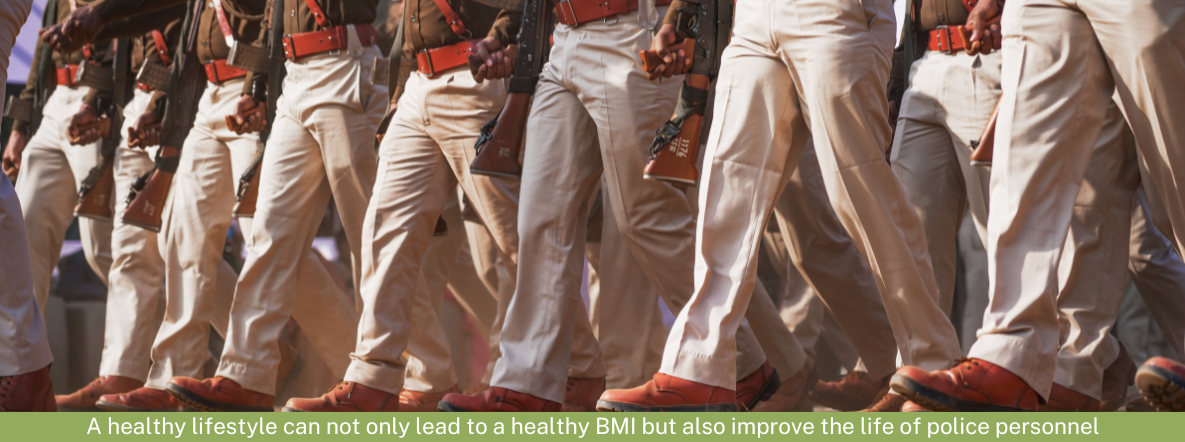In Assam, police have a weighty issue on hand
08 Jun 2023
Opinion: Palash Baruah and D L Wankhar.
For the first time, there would be recording of the Body Mass Index of all Assam Police personnel.
When India celebrates 76 years of Independence on August 15 this year, we are going to witness a health page turning for the police personnel in Assam. For the first time ever, it was decided that there would be recording of the Body Mass Index (BMI) of all Assam Police personnel including IPS/APS officers.
According to news reports, those personnel who do not meet the criteria or are in the obese (BMI 30+) category would be offered another three months to reduce weight (till November end), and still if they fall short of meeting the requisite BMI level they could be voluntarily retired from service; the exception being for those grappling with medical issues.
WHO definition
To put things into perspective, for adults, the WHO defines overweight and obesity as: (i) overweight is a BMI greater than or equal to 25; and (ii) obesity is a BMI greater than or equal to 30. However, the WHO also provided a rider by qualifying it that the criteria should be considered a rough guide because it may not correspond to the same degree of fatness in different individuals.
At the time of selection process, it is well known that police personnel undergo various health and fitness tests but somehow subsequently there is no regular and standardise health assessments. The personnel get drawn into regular work of maintaining law and peace in society with an assortment of unique situations, and fitness is relegated to the background. Unhealthy lifestyle and challenging work environment often lead to various life challenging health issues which include cardiovascular disease, and musculoskeletal, gastrointestinal and psychological disorders.
According to a news report of September 15, 2015, the average BMI of male police officers in Belgium is 26.52 which is above the healthy range (between 18.5 and 25) and it keeps increasing each year. Again, The Week, in its report dated January 9, 2015, quoted a study from the FBI which indicated that 80 per cent of law-enforcement officers in the US are overweight.
A study by the American Journal of Preventive Medicine concluded that 40.7 per cent of police, firefighters, and security guards are obese. A study in Lipids in Health & Disease reveals prevalence of obesity among Saudi police officers in Riyadh.
Closer home, a June 29, 2009, report in a national daily points out that nearly half of the police force in Chandigarh is grossly overweight.
Will the steps taken by the Assam police bring about a sea change in how we perceive the overall and all-round health of our police personnel? Time will tell, but there is no quick-fix solution. A holistic tailor-made fitness programme, followed by its effective and sustained implementation, a regular balanced diet to suit the work profile of the personnel, stress management training sessions, mandatory regular medical check-ups and creating awareness about healthy lifestyle can not only lead to a healthy BMI but also improve the life of police personnel and increase their productivity.
Baruah is Associate Fellow at NCAER, and Wankhar is a retired Indian Economic Service officer. Views are personal
Published in: The Hindu Business Line, 08 Jun 2023






